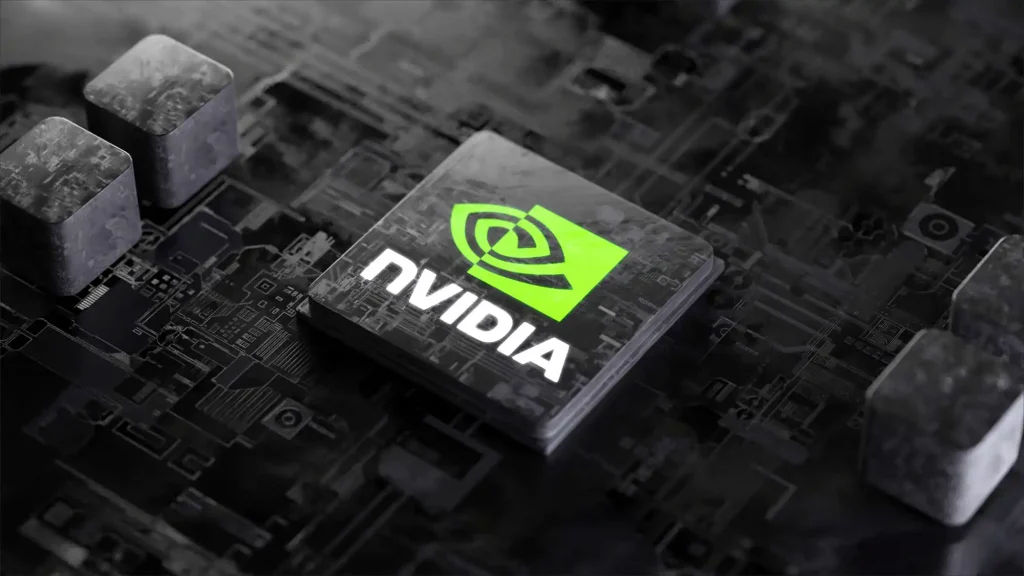A U.S. lawmaker plans to introduce new legislation in the coming weeks to mandate the tracking of artificial intelligence chips, including those produced by Nvidia, once they are sold. This proposed bill has drawn bipartisan support and directly responds to growing concerns over widespread smuggling of these chips into China, where their use may violate U.S. export restrictions.
Lawmakers view the issue as urgent, especially amid reports showing that restricted chips continue entering Chinese markets despite existing bans. They believe the proposed legislation will help enforce export controls, close legal loopholes, and prevent advanced AI technology from falling into the wrong hands.
Nvidia Chips Power AI and Raise Security Alarms
Nvidia’s chips serve as essential components in building AI systems—from simple chatbots and image generators to more complex tools with potential military or biological applications. These capabilities have made the chips a national security priority, prompting the U.S. to implement strict export controls.
Both former President Donald Trump and current President Joe Biden have progressively tightened these restrictions, specifically targeting China’s access to Nvidia’s powerful chips. However, despite these efforts, unauthorized shipments of such chips continue to surface in China.
In its most recent fiscal year ending January 26, Nvidia generated $17 billion in revenue from China, which accounted for about 13% of its total global sales.
Nvidia Claims Tracking is Impossible—Lawmakers Disagree
Although Nvidia insists it cannot track its chips after selling them, Representative Bill Foster, a Democrat from Illinois and a former particle physicist, says otherwise. Foster believes existing technology can solve this problem and argues that Nvidia has already embedded much of the required tracking capabilities in its hardware.
Foster, who previously designed several computer chips during his scientific career, plans to introduce legislation directing U.S. regulators to establish rules in two major areas:
-
Ensuring AI chips remain only in authorized locations as per export control licenses, and
-
Preventing chips from operating if they are not properly licensed under those regulations.
Foster told Reuters that the threat has already materialized. “This is not an imaginary future problem,” he said. “This is a current problem, and sooner or later, we will discover that the Chinese Communist Party or its military is using massive chip arrays to design weapons—or even to work on artificial general intelligence.”
Smuggling Activity Escalates Despite Bans
U.S. authorities have already received credible reports of chip smuggling on a large scale, including incidents that have not yet been publicly disclosed. The threat became more evident after China’s DeepSeek emerged as a significant AI competitor. Analysts from SemiAnalysis confirmed that DeepSeek built its advanced AI systems using Nvidia chips that were legally barred from being sold to China.
Meanwhile, in Singapore, prosecutors have charged three individuals—including a Chinese national—with fraud in a case involving servers that may have contained restricted Nvidia chips. These events highlight how global smuggling networks have managed to bypass export laws.
Big Tech Already Tracks Chips—Proving It’s Feasible
Although industry-wide chip tracking hasn’t yet become standard, the technology already exists and is in use. For instance, Google, a subsidiary of Alphabet, reportedly tracks the physical location of its proprietary AI chips and third-party hardware across its global data centers.
According to two individuals familiar with Google’s operations, the company uses built-in telemetry and real-time location verification to secure its chip infrastructure. This real-world application demonstrates that chip tracking is not only possible but also scalable.
Legislation Could Redefine Global Semiconductor Security
If passed, Foster’s legislation would set a new precedent for post-sale chip compliance, forcing manufacturers and distributors to integrate tracking capabilities into their AI chips. This law would help U.S. authorities monitor where chips go, how they’re used, and whether they comply with export regulations.
In turn, the bill could significantly strengthen national security by denying foreign adversaries access to high-powered AI components. It could also pressure other nations and private companies to adopt similar standards, potentially leading to a global shift in semiconductor security practices.
As demand for AI hardware continues to grow, this legislation marks a critical step in ensuring that cutting-edge technology remains secure, accountable, and compliant with international laws.












